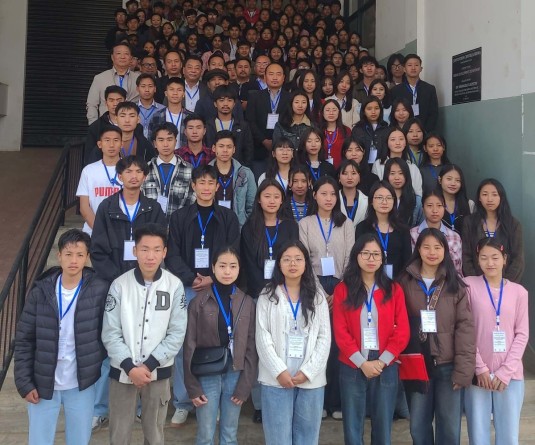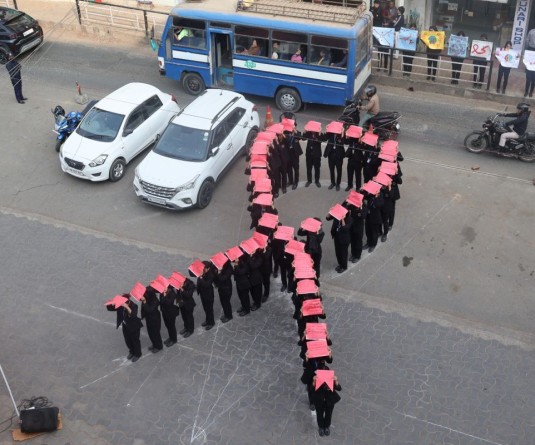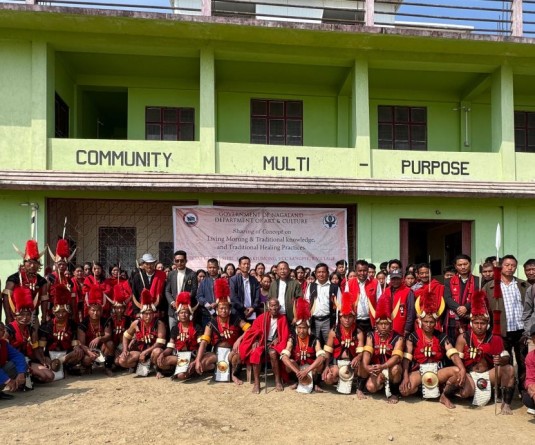
Dimapur, September 27 (MExN): The United Naga Council and the Committee for Alternative Arrangement today reiterated their demand for an alternative administrative arrangement for Nagas in Manipur. The UNC said the demand is “to help us avoid a violent conflagration that the Nagas in Manipur are faced with at this juncture.”
The demand was reiterated to the Prime Minister of India in a memorandum dated September 14. “The disrespect for the rights and aspiration of the Nagas and their continued suppression forced the Nagas to defend themselves. We now come before you to help us avoid a violent conflagration that the Nagas in Manipur are faced with at this juncture,” stated the memorandum appended by the UNC and the committee. The memorandum expressed belief that peace and “good neighborliness” between the Nagas and “the dominant community of the Manipur valley” can only be ensured when the Nagas and their land are not governed and administered by the Government of Manipur.
The Prime Minister is cautioned of “grave potential for communal confrontations and violence which could flare up at the slightest provocations, intentional or perceived as such by any community.” The situation is fragile, sensitive and delicate, the UNC said, so the PM’s immediate intervention to avoid any “catastrophic consequences” is sought. The UNC justified its demand by elaborating history and the reasons that led to the current state-of-affairs.
On 1st July, 2010, the Nagas in the present state of Manipur resolved through its highest decision making forum, the Naga Peoples’ Convention (NPC), that Nagas will sever all political ties with the “communal Government of Manipur.” The vacuum in governance and administration created thereby must be filled with an alternative arrangement by the Government of India in consultation with the Naga people at the earliest possible time, the UNC said. It was also declared that the “imposed” Autonomous District Councils election is “null & void” and under no circumstances shall the district councils be allowed to function in the Naga areas.
“This drastic decision was necessitated by the unmistakable fact that it had become impossible for the Nagas to protect their right to life, land, time-honored institutions, customary practices and values under the administration of the dominant and communal Manipur government, as their history has clearly confirmed the harsh reality that the GoM has never recognized and respected their identity and dignity,” the memo said.
The memorandum also listed historical facts that the Nagas in the present state of Manipur were independent of the Manipur Maharaja. A dual system of administration for the Hills and the Valley came into existence after the British annexed the Meitei kingdom of Manipur in 1891. This system continued even after 1949 when the Meitei kingdom was merged with the Indian Union along with the hill areas, without the knowledge and consent of the Nagas and other tribal people. “This indicated that the indisputable separateness between the Nagas and the people from Manipur Valley was recognized even then,” the memorandum said.
The UNC said the 9-point Agreement of June 1947 signed between Sir Akbar Hydari, Governor of Assam and the Naga National Council (NNC) clearly envisaged and recognized the right of the Nagas to live together under a single united administration. “Further, the thirteenth clause of the Sixteen Point Agreement, 1960, between the GoI and the Naga Peoples’ Convention testified to India’s standing commitment to the consolidation of contiguous Naga areas,” the UNC said.
“The Nagas in Manipur have always opposed their inclusion within Manipur. As far back as 1948, the Nagas in Manipur under the Naga National League (NNL) had made their stand clear that they will not be part of Manipur since the latter had never conquered the Nagas; that it would be impossible for the Nagas to preserve their culture, tradition, customary laws and political practices should the Nagas and their land be split up and placed under different administrative units. The NNL expressed their strong desire to merge with the Naga Hills District of Assam through the boycott of the preparation of electoral rolls in Naga areas in Manipur.”
The Nagas also launched the “No House Tax Campaign” refusing to pay the annual House Tax to the Government of Manipur and instead submitted their annual house tax to Charles Pawsey, DC of Naga Hills of Assam at Kohima. “The campaign was forcibly suppressed resulting in the death of three Nagas and the wounding of many. It may be recalled that, for the second time, the Hill House Tax-2006 of Naga households living in the present state of Manipur was not submitted to the GoM but to the Hon’ble Prime Minister’s office on 7th July 2006 to show the Naga’s strong desire to live together as one people.”
The UNC explained that laws such as the Manipur Village Authorities (Hill Areas) Act, 1956, the Manipur Land Revenue and Land Reform Act, 1960, the Manipur Hill Areas (Acquisition of Chiefs’ Rights) Act, 1966, the Manipur (Hill Areas) District Councils Act, 1971, the Manipur Liquor Prohibition (Amendment) Act 2002 and so on have led to the erosion of Nagas’ rights. “Further, constitutional provisions such as Art 371-C which provides for some form of protection of the interests and rights of the tribals in Manipur have been completely and intentionally ignored,” the UNC said.
“We believe that peaceful parting of ways of the Nagas in Manipur and the Meiteis as good neighbors is the only way to avert catastrophic situations that would arise out of prolongation of the forced union,” the memorandum said.






